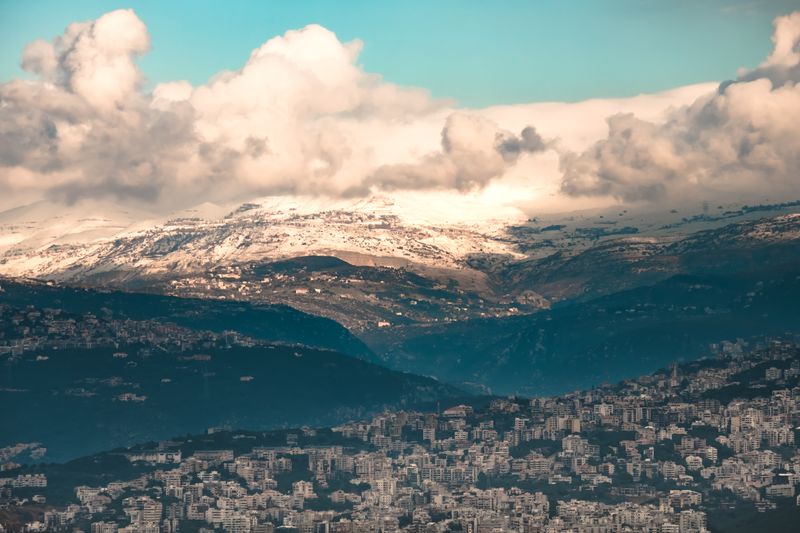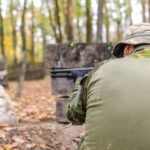Lebanon‘s Hezbollah: A Powerful and Controversial Player in Middle East Politics
Origins and Military Power
Lebanon‘s Hezbollah, a Shi’ite Islamist group, was founded in 1982 by Iran’s Revolutionary Guards with the aim of exporting the Islamic Revolution and fighting against Israeli forces that had invaded Lebanon. Over the years, Hezbollah has gained significant military power and evolved from a shadowy faction in the Lebanese civil war to a heavily armed force that exerts considerable influence over the Lebanese state.
After the civil war, Hezbollah kept its weapons to resist Israeli forces that occupied the predominantly Shi’ite south. It demonstrated its military capabilities in 2006 during a five-week war with Israel, where it kidnapped two soldiers and launched thousands of rockets into Israel. The war resulted in the deaths of 1,200 people in Lebanon, mostly civilians, and 158 Israelis, mostly soldiers. Hezbollah‘s military power grew even further when it deployed forces into Syria in 2012 to assist President Bashar al-Assad in the fight against mostly Sunni rebels.
Today, Hezbollah claims to have 100,000 fighters and possesses precision rockets capable of reaching all parts of Israel. Its military capabilities are supported by Iran, which provides both weapons and financial aid. The United States estimates that Iran has allocated hundreds of millions of dollars annually to Hezbollah in recent years.
Regional Influence and Alliance
Hezbollah has established deep ties with other Iran-backed groups in the region, including the Palestinian factions Hamas and Islamic Jihad. During the recent attack by Hamas gunmen from Gaza into Israel, Hezbollah claimed to be in direct contact with the leadership of the Palestinian resistance, demonstrating its influence and coordination with other groups.
Hezbollah has also been involved in training and supporting Iran-backed groups in Iraq and is believed to have fought in support of the Iran-allied Houthis in Yemen, although the group denies these accusations.
Role in Lebanon
In Lebanon, Hezbollah‘s power is based on its military arsenal and enjoys significant support among the country’s Shi’ite population, who perceive the group as a defender of Lebanon against Israel. However, many Lebanese parties opposed to Hezbollah argue that the group has undermined the state’s authority and unilaterally led Lebanon into conflicts.
Hezbollah has a political presence in Lebanon, with ministers in the government and lawmakers in parliament. It entered politics more prominently in 2005 after ally Syria withdrew from Lebanon following the assassination of former Prime Minister Rafik al-Hariri. However, Hezbollah‘s entry into politics has been a point of contention, with accusations that the group exercises too much influence and prioritizes its own interests over the well-being of the country.
In 2008, a power struggle between Hezbollah and its adversaries, backed by the West and Saudi Arabia, erupted into a brief conflict. The group’s fighters took control of parts of Beirut after the government vowed to dismantle Hezbollah‘s military communications network. Hezbollah and its allies won a parliamentary majority in 2018 but lost it in 2022. Nevertheless, the group continues to exert significant sway over Lebanese politics.
Accusations and Terrorist Designations
Hezbollah has been accused of involvement in attacks on Western targets during the 1980s, including suicide bombings on U.S. Marine headquarters and the U.S. embassy in Beirut. However, Hezbollah leader Sayyed Hassan Nasrallah has maintained that these attacks were carried out by small groups not directly linked to Hezbollah.
The United States and several Western countries, along with U.S.-allied Gulf Arab states such as Saudi Arabia, designate Hezbollah as a terrorist organization. The European Union, on the other hand, classifies only Hezbollah‘s military wing as a terrorist group, while its political wing is not designated as such.
Argentina also blames Hezbollah and Iran for the 1994 bombing of a Jewish community center in Buenos Aires and an attack on the Israeli embassy in 1992. Hezbollah and Iran deny any responsibility for these incidents.
Editorial and Implications
The existence and prominence of Hezbollah in Lebanese politics and the broader Middle East present complex challenges and dilemmas. On one hand, Hezbollah is seen by many Shi’ite Muslims in Lebanon as a defender against Israeli aggression and a significant actor in regional resistance movements. On the other hand, Hezbollah‘s military power and alliance with Iran have led to accusations of terrorism and destabilization.
The group’s involvement in conflicts beyond Lebanon, particularly in Syria, Iraq, and Yemen, has further fueled tensions and sectarian divisions in the region. The support it receives from Iran also raises concerns about the wider power struggle between Iran and its regional rivals, particularly Saudi Arabia.
From a philosophical standpoint, the rise of Hezbollah raises questions about the ethics of armed resistance and the role of non-state actors in international relations. While some argue that Hezbollah‘s actions are justifiable responses to occupation and aggression, others believe that resorting to violence perpetuates cycles of conflict and undermines the prospects for peaceful resolutions.
Advice for Lebanon and the International Community
Addressing the challenges posed by Hezbollah requires a comprehensive and multi-faceted approach. From the Lebanese perspective, it is essential to foster inclusive governance and strengthen state institutions to reduce reliance on armed groups. Reconciliation efforts and dialogue between various political factions, including Hezbollah, are crucial in order to promote national unity and stability.
Internationally, there is a need for balanced engagement with Lebanon that takes into account the country’s complex political dynamics. Efforts should be made to support democratic processes while also addressing legitimate security concerns. Furthermore, dialogue and diplomacy should be pursued in order to de-escalate tensions in the region and find peaceful resolutions to conflicts.
Ultimately, the complex issue of Hezbollah‘s role and influence requires a nuanced understanding and a commitment to promoting stability, security, and respect for human rights in Lebanon and the wider Middle East.

<< photo by Jo Kassis >>
The image is for illustrative purposes only and does not depict the actual situation.
You might want to read !
- Unveiling the Flavorful Layers of Big Zuu’s Rise: Age, TV Stardom, and Matters of the Heart
- The Bold Hamas Offensive: A Defining Moment for Israel
- Mahrez’s £30m Transfer to Al-Ahli: A Game-Changer for Middle Eastern Football?
- The Escalation of Violence: Palestinian Infiltration from Gaza Strip Following Rocket Attack.
- Analysis: Turkey’s Response to the Ankara Blast: Striking Kurdish Rebels
- The Legacy of Dianne Feinstein: Honoring a Trailblazing Senator’s Impact and Achievements




